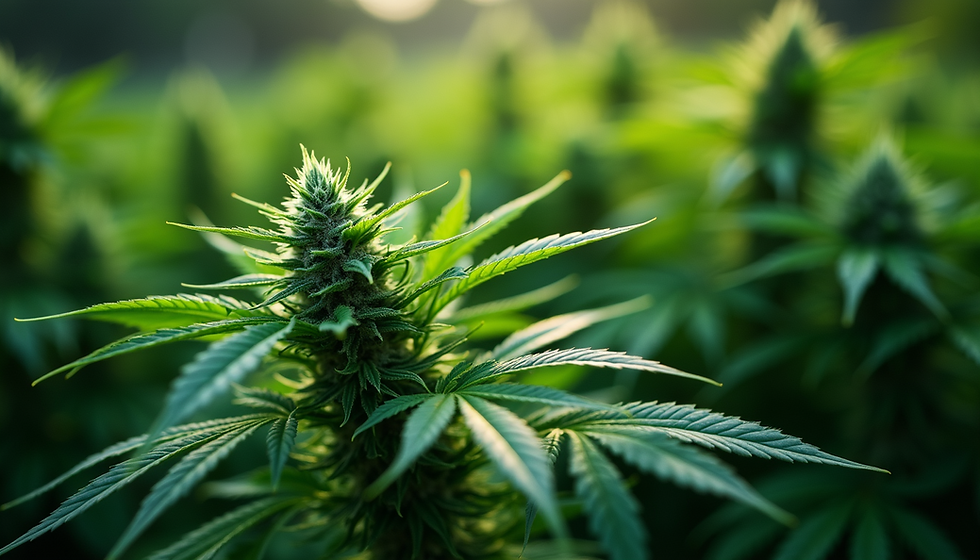Veterans and Cannabis: Relief from PTSD and Other Service-Related Injuries
- kroncannabistn
- Jun 6, 2024
- 2 min read

The use of cannabis to manage PTSD and other service-related injuries among veterans has gained significant attention and support over the years. As research into the therapeutic benefits of cannabis continues to expand, so does its potential for treating veterans suffering from chronic pain, PTSD, and other mental health issues stemming from their service.
Cannabis and PTSD: A Growing Understanding
Post-Traumatic Stress Disorder (PTSD) is prevalent among veterans due to the intense and often traumatic experiences faced during military service. Traditional treatments for PTSD include therapy and medication, but these do not work for all veterans, leading many to seek alternatives. Cannabis is becoming one such alternative, with its potential to alleviate both physical and psychological pain.
The U.S. Department of Veterans Affairs acknowledges the interest in cannabis use among veterans for conditions such as PTSD. While the VA does not endorse or prescribe cannabis due to its classification under federal law as a Schedule I controlled substance, it also clarifies that veterans participating in state-approved marijuana programs will not be denied VA care or services (VA Public Health).
Advocacy and Access
Veteran advocacy groups play a crucial role in pushing for access to cannabis as a viable treatment option. Organizations like Disabled American Veterans (DAV) provide resources and support to veterans exploring medical cannabis as a treatment option. They emphasize the importance of personalized care and advocate for legislative changes that could increase veterans' access to cannabis for therapeutic use (DAV Medical Cannabis).
Furthermore, the Veterans Cannabis Project is dedicated to improving U.S. veterans' access to cannabis for medicinal purposes. They lobby for changes in legislation and work to educate policymakers and the public about the benefits of cannabis for veterans. The organization supports research initiatives and advocates for the removal of barriers to cannabis research, which is essential for advancing understanding and acceptance of cannabis therapy for veterans (Veterans Cannabis Project).
Challenges and Considerations
Despite growing advocacy, veterans face several challenges in accessing medical cannabis. The federal legality of cannabis remains a significant barrier, complicating veterans' access to the treatment through VA channels. Furthermore, there is a need for more comprehensive, high-quality research into cannabis's effects on PTSD and other service-related conditions to better understand its efficacy and safety.
Veterans using cannabis must also navigate the variability in state laws regarding cannabis use, which can affect their ability to obtain and use cannabis legally. Moreover, there are concerns about the interaction of cannabis with other medications commonly prescribed for PTSD and the potential long-term impacts of its use.
Moving Forward
As advocacy grows and more states legalize medical cannabis, it is likely that we will see an increase in veterans turning to cannabis to manage their symptoms. It is crucial for healthcare providers, especially those working within the VA system, to have open and informed discussions with their patients about cannabis. This includes understanding its potential benefits and risks, helping veterans make informed decisions that best support their health and well-being.
The journey towards widespread acceptance and use of cannabis as a therapeutic tool for veterans is ongoing. With continued advocacy, research, and legislative progress, cannabis may become an integral part of the treatment landscape for veterans dealing with the scars of service.







Comments